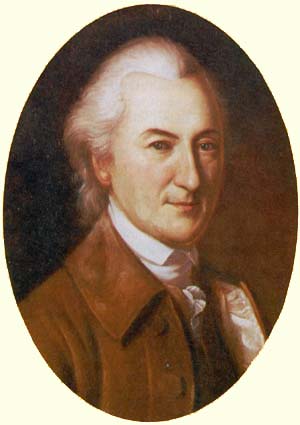The seeds for the ideas in the Declaration of Independence had been sown in the First Continental Congress. Delegates from all the colonies (except Georgia) had met in Philadelphia to assert their rights as citizens of England and to deny parliamentary sovereignty over them.
Continental Congress wrote letter to Quebec to urge Canadians to join the colonies’ cause
Among colonial grievances was Britain’s recognition of the Roman Catholic religion in neighboring Canada, which the British had acquired from France through victories in the French and Indian War. Despite this concern, the colonists hoped that Canada might join them in resisting what they considered to be British abuses.
In October 1776, the Second Continental Congress accordingly drafted a letter to the citizens of Quebec, explaining their disagreements with Britain and urging the Canadians to join the cause.
Letter foreshadowed First Amendment freedom of the press and religion
In their letter, the colonists focused on the rights of no taxation without representation, trial by jury, habeas corpus, and freedom of the press. The latter remains one of the clearest statements of this principle prior to the First Amendment.
Referring specifically to freedom of the press, delegates observed, “The importance of this consists, besides the advancement of truth, science, morality, and arts in general in its diffusion of liberal sentiments on the administration of Government, its ready communication of thoughts between subjects, and its consequential promotion of union among them, whereby oppressive officers are shamed or intimidated, into more honourable and just modes of conducting affairs.”
The document also highlighted the “Liberty of conscience in your religion,” which it described as God-given.
In Thornhill v. Alabama (1940), the Supreme Court cited the letter’s reference to freedom of the press when it invalidated the anti-loitering law that Alabama had applied to labor picketers.
John Vile is professor of political science and dean of the Honors College at Middle Tennessee State University. He is co-editor of the Encyclopedia of the First Amendment. This article was originally published in 2009.

